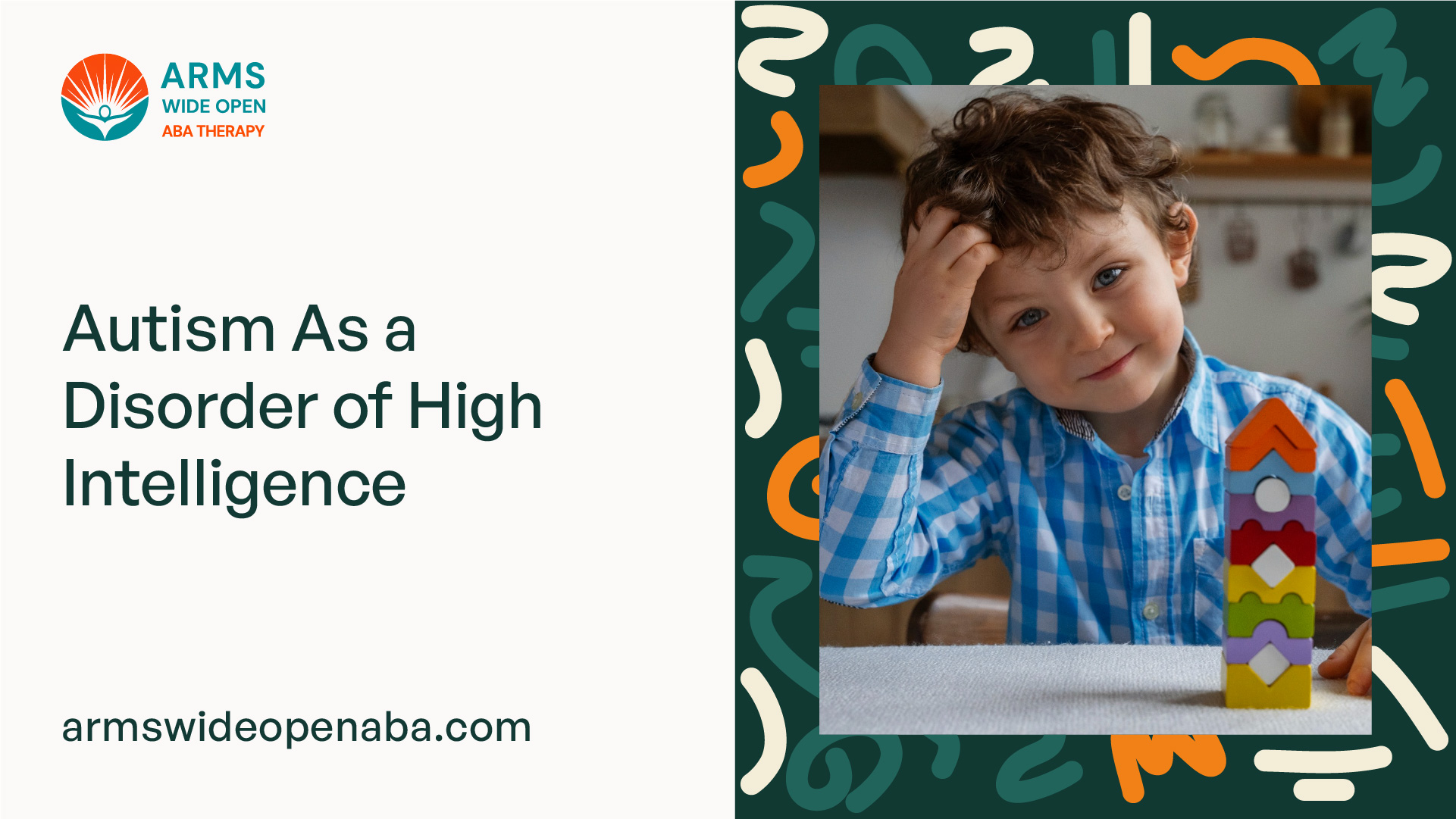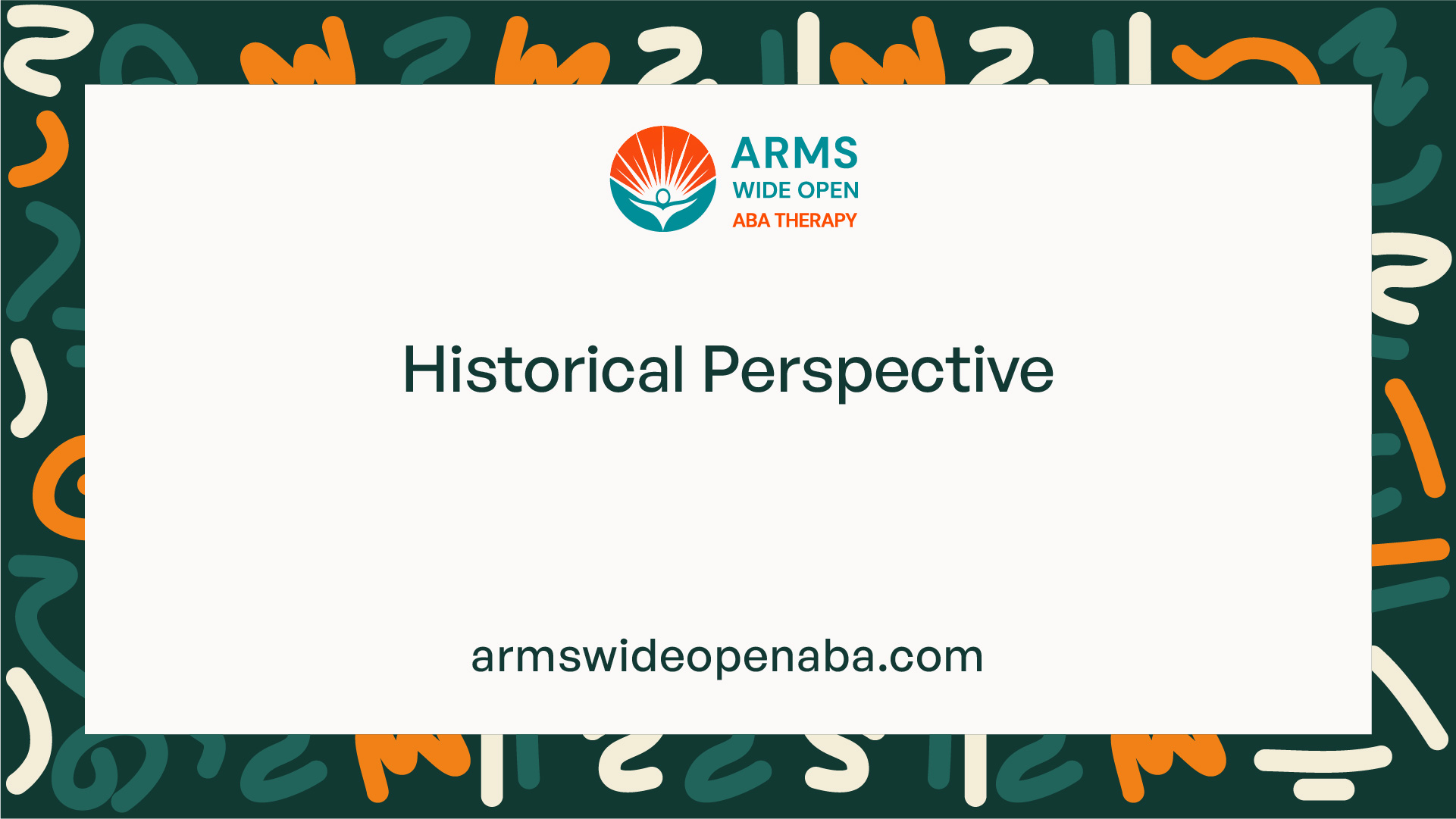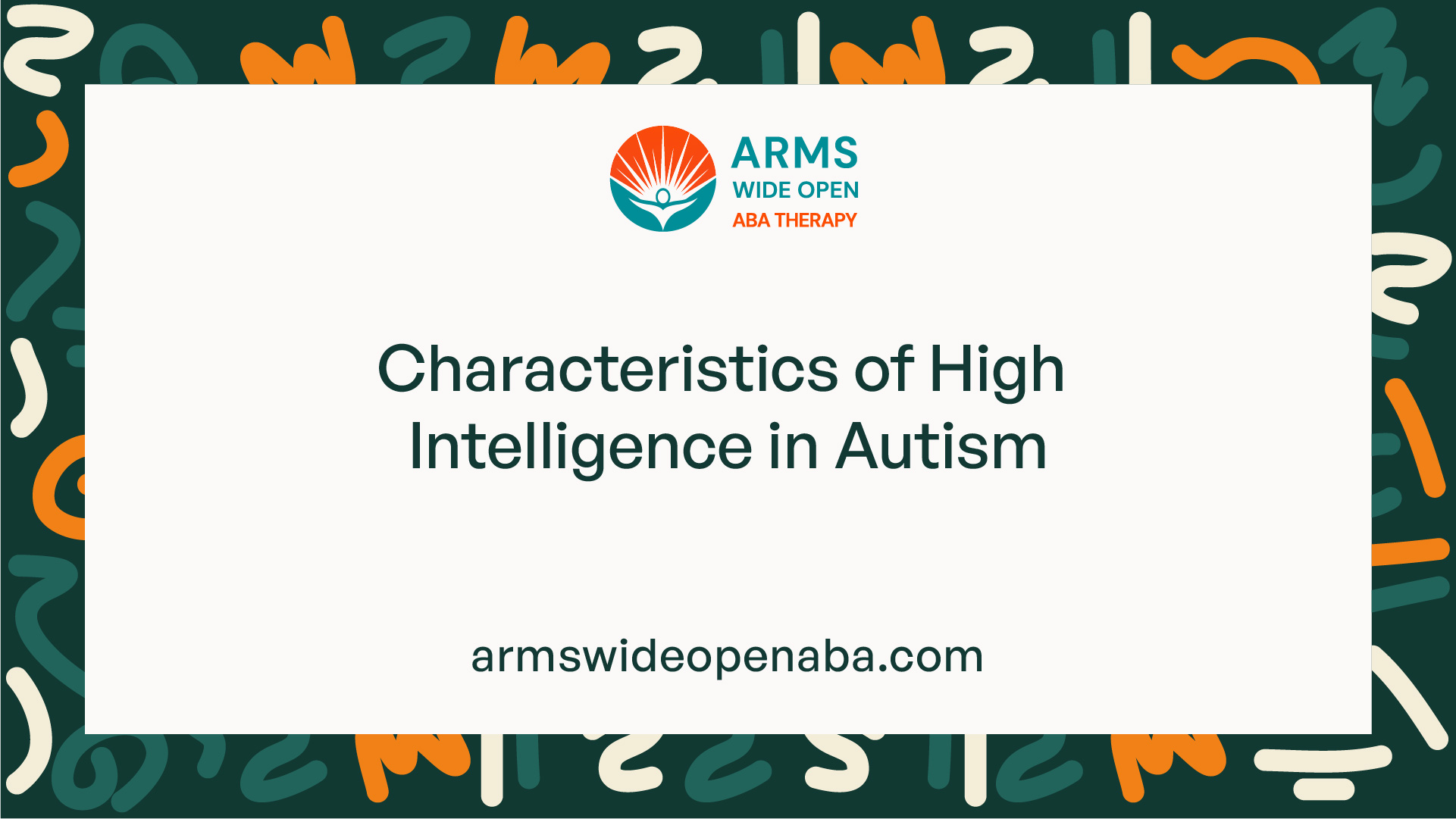Autism As a Disorder of High Intelligence
Unveil the link between high intelligence and autism. Demystify misconceptions and nurture talent for a brighter future.

High Intelligence and Autism
When examining the correlation between high intelligence and autism, it is essential to demystify the connection and acknowledge the challenges associated with identifying high intelligence in individuals with autism.
Demystifying the Connection
The association between high intelligence and autism is a topic that has garnered interest and discussion in the field of neurodiversity. Contrary to traditional perceptions of autism as solely a disorder, research has increasingly revealed that individuals on the autism spectrum can display exceptional cognitive abilities and talents.
While the exact mechanisms behind this link are still under study, it is becoming evident that the neurodiversity within the autism spectrum encompasses a wide range of cognitive profiles, including individuals with high intelligence. Understanding and appreciating this diversity is crucial in promoting the acceptance and support of individuals with autism and high intelligence.
Challenges of Recognizing High Intelligence in Autism
One of the primary challenges in identifying high intelligence in individuals with autism lies in the stereotypes and misconceptions surrounding the condition. The focus on deficits rather than strengths can lead to undervaluing or overlooking the intellectual capabilities that individuals with autism may possess.
Furthermore, the traditional metrics used to assess intelligence may not always capture the unique cognitive profile of individuals with autism. Their strengths, such as exceptional memory, intense focus, and advanced problem-solving skills, might not align with conventional testing methods, leading to potential underestimation of their true intellectual potential.
To better recognize and nurture high intelligence in individuals with autism, it is essential to adopt a holistic and inclusive approach that values neurodiversity and appreciates the diverse cognitive strengths present within the autism spectrum. By challenging stereotypes, addressing misconceptions, and promoting understanding, society can create a more inclusive and supportive environment for individuals with autism and high intelligence to thrive.

Historical Perspective
Exploring the historical viewpoint on the relationship between autism and intelligence reveals significant shifts in understanding over time.
Early Views on Autism and Intelligence
In the early days of autism research, intelligence was often portrayed as a defining factor in the diagnosis of autism spectrum disorder (ASD). There was a common misconception that individuals on the autism spectrum had lower intelligence levels. This limited perspective led to misinterpretations and stereotyping of individuals with ASD based on their intellectual capabilities.
Shift in Understanding
Over the years, there has been a notable shift in the understanding of autism and intelligence. Research and advocacy efforts have highlighted the diverse cognitive profiles present within the autism community, challenging the previous assumptions about intelligence levels. It has become increasingly recognized that many individuals with autism possess high intelligence and unique cognitive strengths that may not be apparent through traditional assessments.
By acknowledging and embracing the cognitive diversity present in autism, society has started to move towards a more inclusive and accepting approach to understanding intelligence within the spectrum. This shift in perspective has paved the way for fostering the talent and potential of individuals with autism, ultimately promoting a more supportive and inclusive environment for all.

Characteristics of High Intelligence in Autism
Exploring the unique intersection of high intelligence and autism unveils a range of distinct characteristics that set individuals with this dual trait apart. Here, we delve into three key features that define high intelligence in autism: exceptional memory and focus, advanced problem-solving skills, and intense interest and expertise.
Exceptional Memory and Focus
Individuals with autism and high intelligence often exhibit remarkable memory capabilities and an unparalleled ability to focus intensely on specific tasks or subjects. This exceptional memory can manifest in various forms, such as the ability to recall intricate details, facts, or events with remarkable clarity and accuracy. Their heightened focus enables them to delve deeply into complex topics, often demonstrating a laser-like concentration that leads to in-depth exploration and understanding.
Advanced Problem-Solving Skills
Another hallmark of high intelligence in autism is advanced problem-solving skills. Individuals with this combination often display a keen aptitude for analyzing complex problems, identifying patterns, and developing innovative solutions. Their cognitive agility allows them to approach challenges from multiple perspectives, leading to creative problem-solving strategies that showcase their intellectual prowess.
Intense Interest and Expertise
Individuals with high intelligence in autism frequently exhibit intense interests in specific subjects or areas of expertise. These passions can span a wide range of domains, from science and mathematics to art, music, or literature. Their deep immersion in these interests often leads to the acquisition of specialized knowledge and expertise, surpassing typical levels of understanding. This intense focus and dedication to their chosen pursuits not only fuel their intellectual growth but also contribute to their sense of fulfillment and accomplishment.
By recognizing and understanding these distinctive characteristics of high intelligence in autism, we can gain a deeper appreciation for the diverse cognitive strengths and capabilities of individuals who navigate the complexities of both high intelligence and autism simultaneously. Embracing these unique traits can foster greater acceptance, support, and opportunities for individuals with this exceptional cognitive profile.
Misconceptions and Stereotypes
When it comes to high intelligence in individuals with autism, there are common misconceptions and stereotypes that can hinder understanding and acceptance. Overcoming these myths and addressing misunderstandings is crucial in fostering a more inclusive and supportive environment for individuals on the autism spectrum.
Overcoming Common Myths
One prevalent myth is that all individuals with autism have intellectual disabilities. In reality, autism is a spectrum disorder, and while some individuals may have challenges in certain areas, others may exhibit exceptional cognitive abilities, including high intelligence. It's important to acknowledge and appreciate the diversity of strengths and talents present within the autism community.

Another misconception is that high intelligence in autism is always accompanied by social difficulties. While social challenges are common among individuals with autism, some individuals with high intelligence may excel in areas such as problem-solving, creativity, and in-depth knowledge in their areas of interest. Recognizing and valuing these strengths is essential in creating a supportive environment for individuals with autism.

Addressing Misunderstandings
Addressing misunderstandings about high intelligence in autism involves promoting awareness and education about the diverse cognitive profiles present within the autism spectrum. By dispelling misconceptions and challenging stereotypes, we can create a more inclusive and understanding society that values the unique strengths and talents of individuals with autism.
One key misunderstanding is the assumption that cognitive abilities in autism are uniform across all individuals. In reality, cognitive profiles can vary widely, with some individuals displaying exceptional skills in specific areas, while others may face challenges in different domains. Embracing this cognitive diversity is essential for providing tailored support and opportunities for individuals with autism.

By challenging misconceptions and addressing misunderstandings surrounding high intelligence in autism, we can pave the way for a more inclusive and supportive society that celebrates the unique talents and abilities of individuals on the autism spectrum.
Cognitive Profile Differences
Exploring the cognitive profile of individuals with autism reveals a spectrum of strengths and weaknesses in cognitive abilities, contributing to the cognitive diversity seen within the autism community.
Strengths and Weaknesses in Cognitive Abilities

The cognitive strengths observed in individuals with autism reflect their unique cognitive processing styles and preferences. While these strengths can be leveraged to excel in certain areas, they may also present challenges in other aspects of daily functioning.
Cognitive Diversity in Autism
One of the defining features of autism is its cognitive diversity, encompassing a wide range of cognitive profiles and abilities among individuals on the spectrum. This diversity highlights the importance of recognizing and valuing the varied ways in which individuals with autism process information, learn, and interact with the world around them.
By understanding and appreciating the cognitive diversity present in autism, society can move towards a more inclusive and supportive approach that celebrates the unique strengths and capabilities of individuals on the spectrum. Embracing this diversity fosters a more accepting and accommodating environment for individuals with autism to thrive and contribute their talents to the community.
Nurturing High Intelligence in Individuals with Autism
When it comes to nurturing the high intelligence often found in individuals with autism, it is essential to provide the right environment and support to help them flourish. Fostering talent and potential, along with providing support and opportunities, plays a crucial role in harnessing their exceptional abilities.
Fostering Talent and Potential
Fostering the talent and potential of individuals with autism involves recognizing and nurturing their unique strengths and capabilities. It is important to create an environment that celebrates diversity and appreciates the exceptional skills that individuals with autism possess.
One way to foster talent is through personalized learning approaches that cater to the individual's specific interests and strengths. By recognizing and building on their talents, individuals with autism can reach their full potential and make valuable contributions to various fields.
Providing Support and Opportunities
Providing support and opportunities is key to helping individuals with autism thrive and succeed in their areas of expertise. This support can come in various forms, including access to educational resources, mentorship programs, and career development opportunities.
In addition, creating inclusive spaces and workplaces that value neurodiversity can help individuals with autism feel supported and accepted. By providing accommodations and understanding their unique needs, we can empower them to showcase their intelligence and talents.
By nurturing high intelligence in individuals with autism through fostering talent and providing support and opportunities, we can create a more inclusive society that recognizes and appreciates the diverse abilities of all individuals, regardless of their neurodiversity.
Enhancing Understanding and Acceptance
In the realm of autism, advocating for recognition and promoting neurodiversity and inclusion are vital steps toward fostering a more understanding and accepting society.
Advocating for Recognition
Advocacy plays a crucial role in ensuring that individuals with autism, particularly those with high intelligence, are acknowledged and supported in society. By advocating for recognition, we strive to highlight the unique strengths and abilities of individuals with autism, challenging misconceptions and stereotypes that may hinder their integration into various aspects of life.
Promoting Neurodiversity and Inclusion
Promoting neurodiversity and fostering a culture of inclusion are key components of creating a more accepting and supportive environment for individuals with autism. Embracing neurodiversity means recognizing and valuing the diverse range of neurological differences, including those associated with autism. By promoting inclusion, we aim to create spaces and opportunities that cater to the individual needs and strengths of individuals with autism, allowing them to thrive and contribute positively to society.
Advocating for recognition and promoting neurodiversity and inclusion are essential steps in enhancing understanding and acceptance of individuals with autism, particularly those with high intelligence. By championing these principles, we can work towards a more inclusive and supportive society that celebrates the unique abilities and perspectives of individuals with autism.
Sources
https://www.ncbi.nlm.nih.gov/pmc/articles/PMC4927579/
https://pubmed.ncbi.nlm.nih.gov/27445671/
https://www.webmd.com/brain/autism/high-functioning-autism
Similar articles
We’re here to help you

Our team is here to assist you in this process. Contact us for any assistance.
it’s easy to apply
We Accept Most Insurances
Our in-network insurance partnerships make ABA therapy more accessible to families throughout our service areas.







Our Insurance Process
We'll request your insurance details to help us verify your plan's coverage for ABA therapy. Once we've received this information, we'll walk you through your benefits, including copayments, deductibles and out-of-pocket maximums, so you know what to expect in advance.
Our team will then handle the preauthorization and all the necessary paperwork.
.svg)





















.jpeg)


































.jpeg)




.jpeg)







.jpeg)











.jpeg)
















